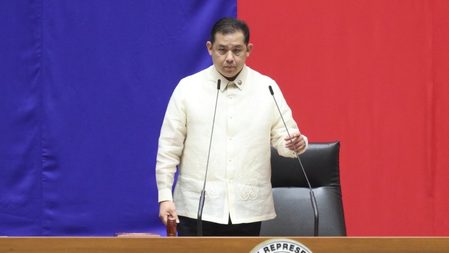SUMMARY
This is AI generated summarization, which may have errors. For context, always refer to the full article.
![[ANALYSIS] Philippine media: The revenue and public service mismatch](https://www.rappler.com/tachyon/2024/02/tl-ph-media-rev-public-service-mismatch.jpg)
If one listens to eulogies delivered on the closure of CNN Philippines, invariably some of the more thoughtful and analytical might relate the dying breath of legitimate news and public affairs analysis and reporting to several disturbing developments in our political environment.
We have to admit that several body blows to what was once one of the most independent Fourth Estates in the region have so weakened a critical pillar of democracy especially important for a country that resurrected its darkest nightmares. Likened to hara-kiri, assisted by a second where the suicidal disemboweling is followed by a swift decapitation by a trusted aide, it took from the Duterte administration to the current Marcos presidency to weaken Philippine media to where it is now.
At our old campus, more are now taking political science – a disturbing contrast to the number taking journalism where keen and enthusiastic interest once reigned, sparked as far back when the New York Times brought the Pentagon to its knees and Woodward and Bernstein held the leader of the Western world accountable.
Displacing the Fourth Estate are apps that empower even anonymous bots and nameless troll armies. Catalyzing the rise of the free-for-all social media is the inverse loss from to the closure of ABS-CBN when legislators refused to extend its franchise, giving reasons that ranged from unfair treatment towards a presidential candidate to wanton accusations of tax evasion.
The final reasons on the congressional floor, however, differed and required more brain cells to fathom. The reduction to the lowest common denominator ploy in congressional narratives is a common tact where realities might be a tad more complex for constituencies accustomed to abbreviated soundbites that pander to simplistic thinking.
The eventual official reasons had to do with operating a cable channel illegally and that the company had hidden behind a “corporate veil” foreign equity constitutionally disallowed for telecommunications and media companies granted congressional franchises. Note the disparity between what had first been spun in front of the public and what had eventually been woven by politicians. Especially note where both bases bracketing the closure were unproven.
Different multiverse
Given the quality of our legislature, rationality is a clearly missing requisite. Worse, its diametric opposite, a complete and solid spectrum from inanity and irrationality to insanity and total absurdity characterizes the weaponization of the non-political, non-partisan act of parceling out franchise grants. Align this with Rodrigo Duterte’s declaration that “journalists are not exempted from assassination” and Ferdinand R. Marcos’ failure to open himself to independent media scrutiny, thus showing from little to zero interest to counter the curse of disinformation founding his presidency.
The existential challenges that faced ABS-CBN, and now CNN Philippines, and most traditional print and online media catering to niche markets like business news outlets, public affairs programs, history channels, and educational fora, are all aggravated by a highly politicized and toxic environment – albeit not one unique to the Philippines.
ABS-CBN, after several failures to resurrect, now exists in a totally different multiverse with its capital structure and soul unrecognizable save for its entertainment façade. In the United States, Ted Turner’s CNN, birthed by wars in the Middle East, popularized conflicts, complete with embedded reporters and graphic live footages of door-to-door fighting never-before brought to living rooms. To survive CNN had recently been sold to a conglomerate that earned its revenues from entertainment, movies and Hollywood.
On the opposite end, enjoying primetime viewership exponentially multiples of CNN, Fox News developed from an entertainment and sports platform where equity income and de facto financial recourses account for its stability.
Markets too lazy to think for themselves, and the increasing threat of popularization on the spread of truthful information, the surrender by decreasing numerators against increasingly heftier common denominators, and the continuing capitulation to commercialization, have been around for long, regardless of politization. Note how TV news is not only now peppered with show business trivia, voyeurism and tabloid content but seems to be flavored by it. Note how the more serious news programs on primetime TV are gradually pushed aside as kitschy soap and telenovelas become a network’s star and cash cow.
Low growth, small market
Following the Boston Consulting Group (BCG) matrix, entertainment content has both higher growth and higher market share than news and public affairs, depicted in the matrix as a dog with low growth and small market share.
This is validated by financial data researched by Rappler and the nature of media revenues arrayed against alienated costs of services and operating expenses from CNN Philippines’ closure.
In management science and accountancy, costs of goods sold and services are mathematical functions of gross revenues. It is not the same with media organizations.
After net revenues are generated, the essential costs are mostly operating expenses (OPEX) and hence management efforts to control these prior to earnings before interest, taxes, depreciation and amortizations (EBITDA) are concentrated here.
Why EBITDA? Because OPEX prior to EBITDA are controllable. After EBITDA everything depends on external parties.
Unfortunately, the disconnect between net revenues and OPEX can mean that OPEX can be heftier than revenues, particularly fatal where a network relies on news and public affairs to generate advertising gross revenues but lacks a broad-based entertainment cash cow that attracts advertisers. News and public affairs is not entertainment. It only aligns with a broad market during election years where the distinction between news and entertainment blurs as politicians revert to clowns and circus performers.
Without an entertainment cash cow, media companies focused on news and public affairs often find cashflow relief from incremental debt, capital calls, equity advances, and hybrid sources like preferred shares or depositary receipts. None of these are assets in a balance sheet. Worse, none appear in an income statement’s EBITDA.
A toxic external political environment and internal financial mismatches require increasing entertainment content and subject matter that cater to a broader market base that generates advertising or subscription revenues. Otherwise, a pure news and public affairs media business model will go the way of the dinosaur. – Rappler.com
Dean de la Paz is a former investment banker and managing director of a New Jersey-based power company operating in the Philippines. He is the chairman of the board of a renewable energy company and is a retired Business Policy, Finance, and Mathematics professor. He collects Godzilla figures and antique tin robots.
1 comment
How does this make you feel?





![[OPINION] You don’t always need a journalism degree to be a journalist](https://www.rappler.com/tachyon/2024/06/jed-harme-fellowship-essay-june-19-2024.jpg?resize=257%2C257&crop=287px%2C0px%2C720px%2C720px)

![[ANALYSIS] Philippine media: The revenue and public service mismatch](https://www.rappler.com/tachyon/2024/02/tl-ph-media-rev-public-service-mismatch.jpg?resize=257%2C257&crop_strategy=attention)







Sadly, a pure news and public affairs media business model must address a “toxic external political environment and internal financial mismatches.” This is a challenge to the actual Fourth Estate in this country. Its survival is essential to the Philippine Democracy.